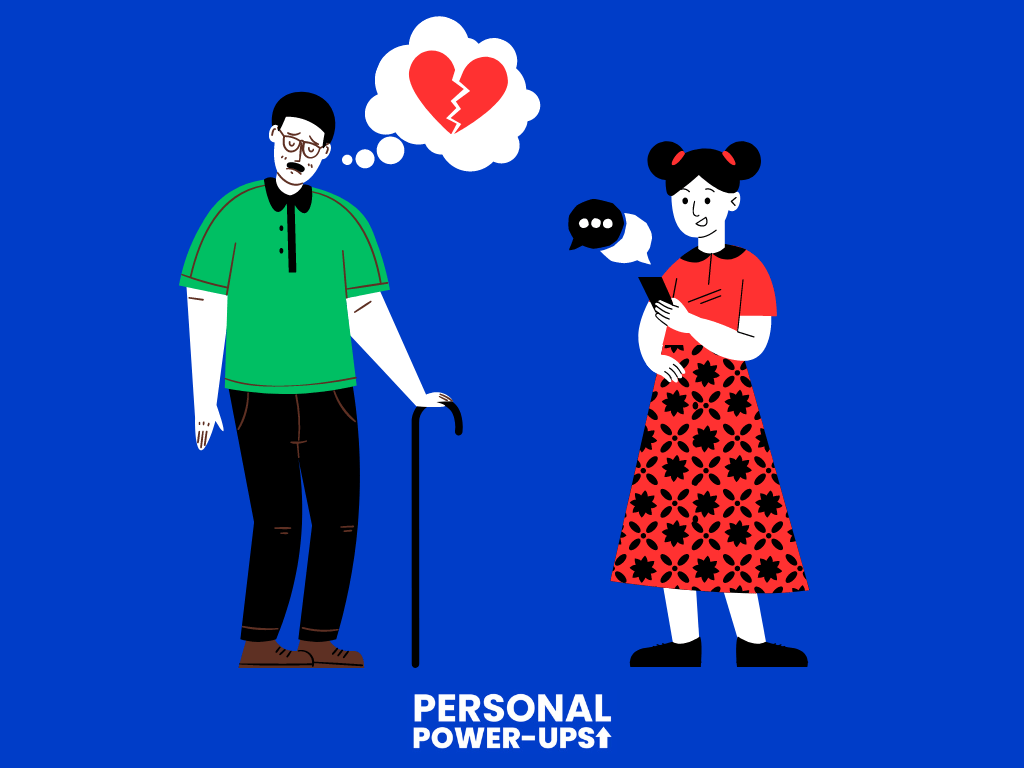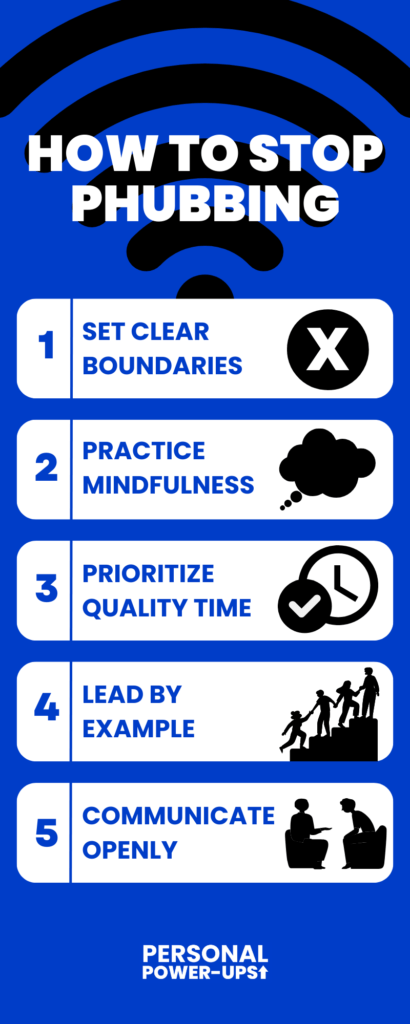Picture this: You’re out for dinner with your significant other, eager to catch up on each other’s day. But as soon you sit down, they dive into their phone, scrolling through social media, barely acknowledging your presence.
You feel a pang of disappointment, a sense of disconnection creeping in. This scenario is all too common nowadays, and it has a name: phubbing. But what is phubbing exactly, and how do you stop it?
Table of Contents
What is Phubbing?
Phubbing, a contraction of “phone” and “snubbing,” refers to the act of ignoring someone in favor of your phone. It’s the modern-day epidemic that’s silently damaging relationships, hindering communication, and creating feelings of neglect and loneliness.
To put it simply, phubbing is the art of being physically present but mentally absent, lost in the digital world while ignoring the real one unfolding around you. Whether it’s checking notifications, scrolling through social media feeds, or responding to emails, phubbing robs you of genuine human connection and intimacy.
In a relationship, phubbing can be particularly damaging. It sends a message to your partner that they are less important than whatever is happening on your phone. It erodes trust, intimacy, and emotional connection, leading to feelings of resentment and dissatisfaction.

Why Should You Stop Phubbing?
Phubbing doesn’t just harm your relationships; it also takes a toll on your mental well-being. Constantly being glued to your phone can increase stress levels, contribute to anxiety, and decrease overall life satisfaction. By breaking free from the phubbing cycle, you can reclaim your time, improve your relationships, and create a healthier relationship with technology. Overall, it’s an improvement of your social skills if you quit phubbing.
How to Stop Phubbing
Now that you understand the detrimental effects of phubbing, let’s explore practical steps to kick this habit to the curb and reconnect with the world and people around you.
1. Set Clear Boundaries
Establish clear boundaries for phone usage, especially during quality time with your partner, family and friends. Designate phone-free zones or specific times when phones are off-limits, such as during meals or before bedtime.
Example: Imagine enjoying a romantic dinner with your partner without the constant distraction of phones buzzing and notifications chiming. By setting boundaries, you create space for meaningful conversations and genuine connection, strengthening your bond.
2. Practice Mindfulness
Be mindful of your phone usage and its impact on your relationships. Pause and reflect on your habits, noticing when you’re tempted to reach for your phone instead of engaging with those around you. If you notice this temptation, don’t judge yourself, but resist it. It’s a skill you’ll need to practice, so forgive yourself if you sometimes slip up.
Example: Next time you feel the urge to check your phone during a conversation, take a moment to assess your priorities. Is scrolling through social media more important than being present with your loved one? By practicing mindfulness, you can make conscious choices that prioritize real-world connections over virtual distractions.
3. Prioritize Quality Time
Make a concerted effort to prioritize quality time with your partner without the intrusion of technology. Plan activities that encourage genuine interaction, such as going for a walk, cooking together, or enjoying a board game. If you’re busy, there will be less of an urge to check your phone.
Example: Imagine spending a lazy Sunday morning cuddled up with your partner, sharing stories and laughter without the constant buzz of notifications interrupting the moment. By prioritizing quality time, you create opportunities for deeper connection with your loved ones.
4. Lead by Example
Be the change you wish to see by leading by example. Show your partner, friend or family member that they have your undivided attention and that they are valued and respected in your presence. They are likely to notice, and will definitely appreciate your effort. In return, they are likely to reflect on their own behavior and may make an effort themselves to stop phubbing.
Example: Instead of mindlessly scrolling through your phone during downtime, you talk with your friend about how their job seeking efforts are going. By demonstrating your interest, presence and attentiveness, you set a positive example and encourage your friend to reciprocate.
5. Communicate Openly
Have open and honest conversations with your partner, friend or family member about phubbing and its impact on your relationship. Express your feelings and concerns, and work together to find mutually beneficial solutions. It’s not you versus them, but it’s both of you versus the problem of phubbing. So try to be empathic and understand that most people mean no harm when they’re phubbing. Rather, social media has been designed to be as addictive as possible. It’s time to take back control together!
Example: Sit down with your partner and have a heart-to-heart conversation about phubbing. Share how it makes you feel when they prioritize their phone over you and listen to their perspective. Together, brainstorm strategies to minimize phubbing and improve your connection. Try to find a way that works for both of you.
Conclusion: What is Phubbing and How to Stop it?
Phubbing may seem like a fairly harmless habit at first, but its consequences can be far-reaching, jeopardizing the very fabric of your relationships and well-being. By understanding what phubbing is, recognizing its detrimental effects, and taking proactive steps to stop it, you can reclaim your presence.
In turn, this will help you nurture deeper connections, and create a more fulfilling life both online and offline. So, the next time you’re tempted to reach for your phone, remember: the real magic happens when you put it down and truly engage with the world and people around you. Good luck!





